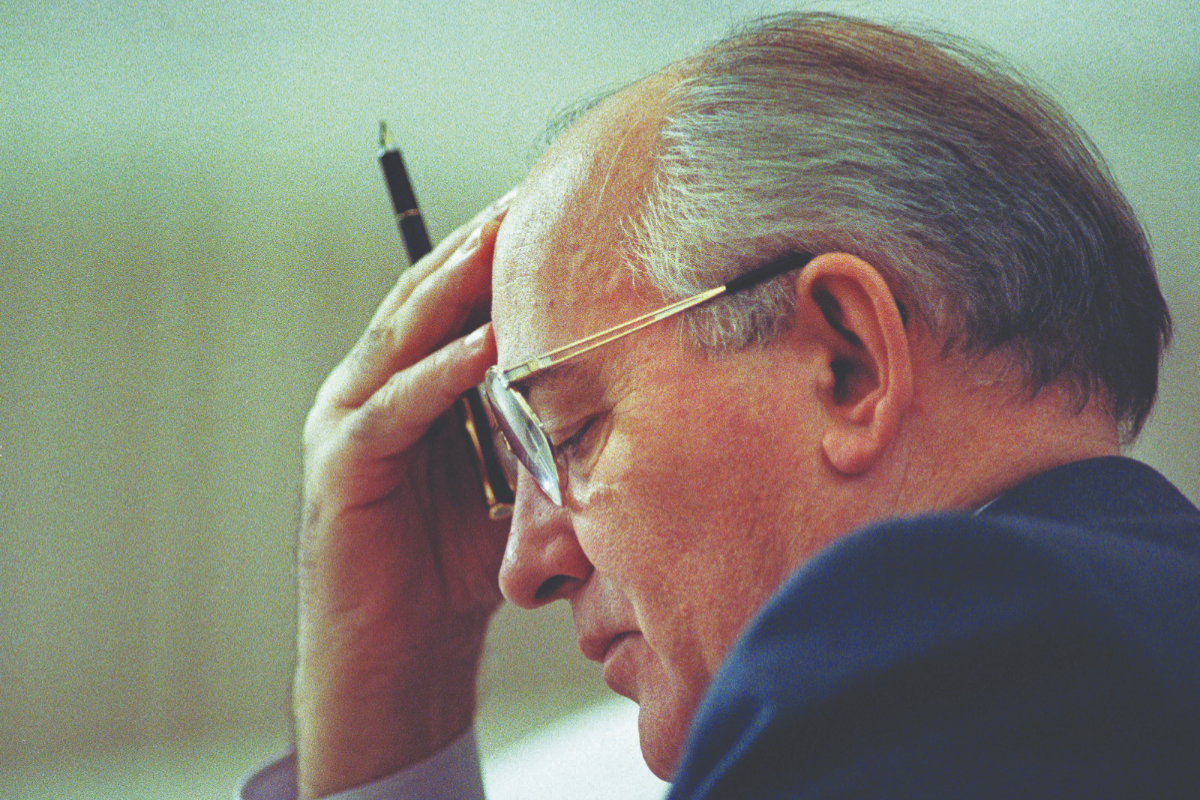
World hails ‘rare’ ex-Soviet leader
World leaders paid tribute to Mikhail Gorbachev, the last leader of the Soviet Union who died on August 30 in Moscow aged 91. The man who played a major role in ending the Cold War was praised for being a “rare leader” who helped change the course of world history.
United States
President Joe Biden hailed a “rare leader… one with the imagination to see that a different future was possible and the courage to risk his entire career to achieve it.” “The result was a safer world and greater freedom for millions of people,” Biden said.
Russia
President Vladimir Putin said Gorbachev “was a politician and statesman who had a huge impact on the course of world history,” expressing “deepest condolences” to his friends and family. “He led our country during a period of complex, dramatic changes,” Putin added. “He deeply understood that reforms were necessary, he strove to offer his own solutions to urgent problems.”
Russian winner of last year’s Nobel Peace Prize, Dmitry Muratov, hailed his fellow Nobel laureate as someone who “put human rights above the state, and valued a peaceful sky more than personal power.” “He despised war,” he said. “He gave both the country and the world an incredible gift — he gave us thirty years of peace. Without the threat of global and nuclear war.”
China
Beijing paid tribute to Gorbachev for making “positive contributions to the normalisation of Sino-Soviet relations”. “Mikhail Gorbachev made positive contributions to the normalisation of Sino-Soviet relations,” foreign ministry spokesman Zhao Lijian said at a regular press conference, adding: “We mourn his death and express our condolences to his family.”
Germany
President Frank-Walter Steinmeier said Germany was “bound in gratitude with him for his decisive contribution to German unity”.
Chancellor Olaf Scholz hailed Gorbachev’s role in reuniting Germany but lamented he had “died at a time in which democracy has failed in Russia”.
Angela Merkel, the former chancellor who grew up in East Germany, said Gorbachev had “fundamentally changed my life” and showed how “one single statesman can change the world for the better”.
Italy
“His desire for peace, his opposition to an imperialist vision of Russia won him the Nobel (peace) prize,” Prime Minister Mario Draghi said.
“These messages are all the more current in the face of the tragedy of the invasion of Ukraine.”
United Nations
“A one-of-a-kind statesman who changed the course of history” and “did more than any other individual to bring about the peaceful end of the Cold War”, UN chief Antonio Guterres said in a statement.
European Union
European Commission President Ursula von der Leyen hailed a “trusted and respected leader” who “opened the way for a free Europe”. His “crucial role” in bringing down the Iron Curtain and ending the Cold War left a legacy “we will not forget.”
NATO
Secretary general Jens Stoltenberg said Gorbachev’s “vision of a better world remains an example” and paid tribute to his “historic reforms… (which) opened the possibility of a partnership between Russia and NATO”.
United Kingdom
Prime Minister Boris Johnson said he “always admired the courage and integrity” Gorbachev showed to help end the Cold War. “In a time of Putin’s aggression in Ukraine, his tireless commitment to opening up Soviet society remains an example to us all.”
France
President Emmanuel Macron described Gorbachev as a “man of peace” who “opened a path of liberty for Russians. His commitment to peace in Europe changed our shared history”.
Nobel Committee
The Norwegian Nobel Committee said Gorbachev was awarded the Peace Prize in 1990 for his “leading role in the process which led to the peaceful ending of the Cold War… including important arms control and international trust-building initiatives.”
The committee praised him for bringing “greater openness in Soviet society and allowing the people of Eastern Europe to regain their freedom.”
Sweden
Foreign Minister Ann Linde said Gorbachev inspired her in her youth, offering “a hope for another future away from the repression and Cold War”.
“So immensely sad the present leader is taking the opposite way,” she wrote on Twitter.
Love-hate relationship with Putin
Mikhail Gorbachev struggled to make up his mind about Vladimir Putin.
Over the more than 20 years after Putin came to power, the ex-Soviet leader embraced, then rejected, then embraced again the man who — much like Gorbachev in the 1980s — came to embody Russia in the eyes of the West.
A grudging respect seemed to have developed in the end, with Gorbachev saying ahead of Putin’s 2018 re-election for a fourth term: “Today he is a leader who deservedly enjoys people’s support.”
After the chaos of the 1990s and the rule of his nemesis Boris Yeltsin, Gorbachev expressed hope for the former KGB agent who was first elected Russia’s president in 2000.
Putin, he said at the time, was “intelligent, serious, reserved and well-organised. I like people of this kind.”
For Gorbachev, Putin represented a chance for stability and economic growth, while continuing the transition to democracy he had set in place.
Even in 2006, as activists expressed increasing concern about the tough treatment of civil society under Putin, Gorbachev was able to declare that “those who fear Putin’s authoritarian tendencies are wrong.”
But as the years went by and hopes of democratic development in Russia evaporated, Gorbachev turned to veiled criticism and then to strongly worded attacks.
Fraud-tainted 2011 parliamentary elections hardened his attitude against the president, as well as Putin’s decision to stand for an unprecedented third term in office.
Gorbachev backed a protest movement that followed the elections and in 2013 made a stinging attack on Russia under Putin.
“Politics is more and more turning into an imitation of democracy. All power is in the hands of the authorities and the president,” Gorbachev said at the time.
“The economy is monopolised. Corruption has taken on colossal proportions.”
Foreign media often latched on to his comments and he part-owned the proudly anti-Kremlin Novaya Gazeta newspaper, which suspended publication earlier this year after Russia launched its military action in Ukraine. But at most Gorbachev was an irritating thorn in Putin’s side.
The Kremlin shrugged off criticism from the man who allowed the collapse of the USSR, which Putin famously described as the biggest geopolitical tragedy of the 20th century.
When Gorbachev slammed Putin over the decision to return to the Kremlin for a third term, the Russian strongman spat back by accusing the former Soviet president of “abdicating” power.
By 2014, there were signs of another change of heart, with Gorbachev supporting Moscow’s seizure of Crimea from Ukraine despite a Western outcry. “Crimea is Russia and let someone prove the opposite,” Gorbachev said.
The next year he backed Russia’s launching of a military campaign in Syria to support President Bashar Al-Assad’s regime.
By the time Putin was running for a historic fourth term in 2018, Gorbachev was saying he was the kind of leader Russia needed in a “very complicated international situation”.
The bitter irony was that in his twilight years Gorbachev supported a man who did not think much of him and who dismantled much of what the Soviet leader worked to achieve.
While Gorbachev had opened the door to political opposition and a free press, Russia under Putin was accused of persecuting dissenters and squelching freedom of speech.
Putin said little of Gorbachev’s achievements in a letter of condolences after his death.
He was, Putin wrote, “a politician and statesman who had a huge impact on the course of world history”, one who “strove to offer his own solutions to urgent problems”.
Catch all the The Globe News, Breaking News Event and Latest News Updates on The BOL News
Download The BOL News App to get the Daily News Update & Live News.





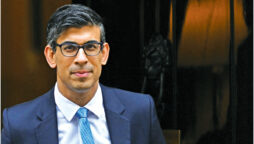
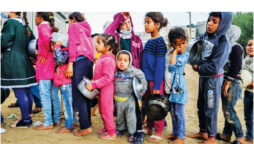
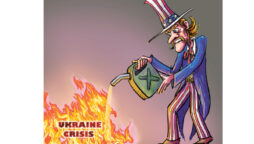
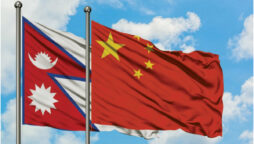
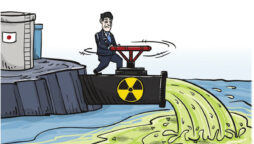

 Read the complete story text.
Read the complete story text. Listen to audio of the story.
Listen to audio of the story.